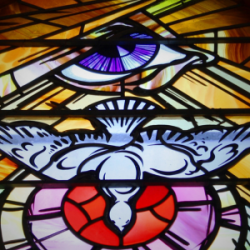Welcome readers! Please subscribe through the buttons on the right if you enjoy this post.

Few stories have historically been scarier to the human psyche than stories of possession. Yet Mark’s author places this story at the beginning of this Jesus narrative for a reason:
“They went to Capernaum; and when the Sabbath came, he entered the synagogue and taught. They were astounded at his teaching, for he taught them as one having authority, and not as the scribes. Just then there was in their synagogue a man with an unclean spirit, and he cried out, ‘What have you to do with us, Jesus of Nazareth? Have you come to destroy us? I know who you are, the Holy One of God.’ But Jesus rebuked him, saying, ‘Be silent, and come out of him!’ And the unclean spirit, convulsing him and crying with a loud voice, came out of him. They were all amazed, and they kept on asking one another, ‘What is this? A new teaching—with authority! He commands even the unclean spirits, and they obey him.’ At once his fame began to spread throughout the surrounding region of Galilee.” (Mark 1:21-28)
This story takes place in the most sacred boundaries of time and space in Jesus’ community. It’s a story about the social phenomenon that the gospels refer to as the way of sacrifice.
As we’ve discussed over the past few weeks, communities built on exclusivity depend on their agreeing who to exclude from their society. They need a “sacrifice,” someone to expel out of their borders for society to function properly, and they find unity in being against what they define as “other.” Finding unity in vilifying someone gives communities like this their life. They depend on the existence of a “demoniac.”
We lose so much today if we throw out the stories of demoniacs and exorcisms in the Jesus narratives simply because we cannot find a naturalist explanation for them. If we look for their sociopolitical themes, though, demoniac stories help us understand human societies and they should not be dismissed too quickly. One possible interpretation of the demoniac stories in the gospels is to understand them as drawing attention to those whom the community has chosen to expel: the scapegoats, the sacrificed, the expelled victims who have internalized their community’s hatred as deserved. They have come to agree with the community that they should be driven outside the camp, and they become “possessed” by how their community estimates them.
We’ll begin looking at each piece of this story, next.

















